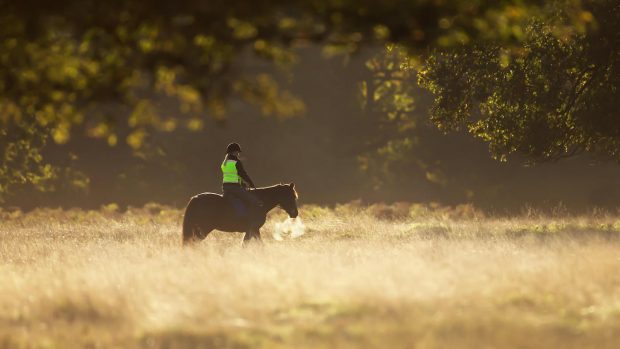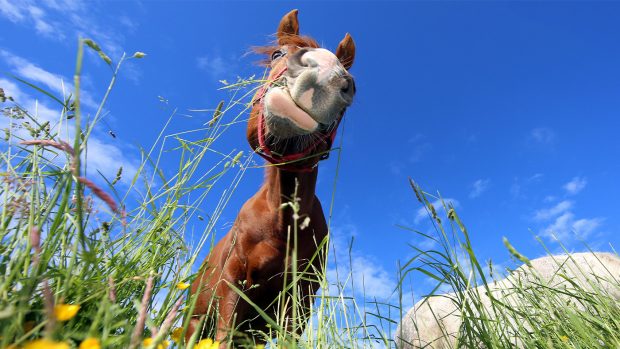One of a horse’s basic needs is food and in the provision of this some of the most simple abuses of good husbandry take place. Often not deliberate, this abuse occurs through lack of knowledge oroverdoing kindness.
Basic feeding bloomers which are seen time and again include:
Not making gradual changes to the horse’s diet – this applies equally to increasing concentrates and reducing roughage.
Giving the wrong type of feed or the incorrect amount – easily done by overestimating the work done and underestimating the amount a scoop holds, or not watching the horse’s condition.
Not understanding the relative impact of feedstuffs on the overall diet. Ascoop of dry bran or oats has little impact on the weight of the horse’s feed by may have a substantial impact on the horse’s temperament.
Forgetting fibre – horses are designed to live on a high-fibre diet. A minimum of 50% of the diet should be fibre.
Using poor quality feeds. You get what you pay for. Good quality forage costs money; the same is true for proprietary feeds. In many cases you waste or have to feed more of a poor quality product than of a better, more expensive one.
Get educated
Good practical husbandry with technical knowledge is a must, so you can decide between the plethora of feed products on the market.
Investigate what courses are available through distance learning. Go to meetings and seminars on feeding. The BHS offers a range of courses for both instructors/groom and horse owners (tel: 08701 202244).
Get advice
Ask an “expert” but be aware they have varying degrees of knowledge:
The friend: readily available with advice on what worked for them, but they are not always objective.
The vet: usually the second person called after the friend when things go wrong.
Feed company’s advice line: The nutritionists will beknowledgable, although biased towards own brand products.
The feed merchant: the obvious place for advice. But only useful if you use hard feed or a supplement and the staff are knowledgeable.
Societies: there are hundreds of clubs and societies which offer feeding tips specific to breed or discipline.




